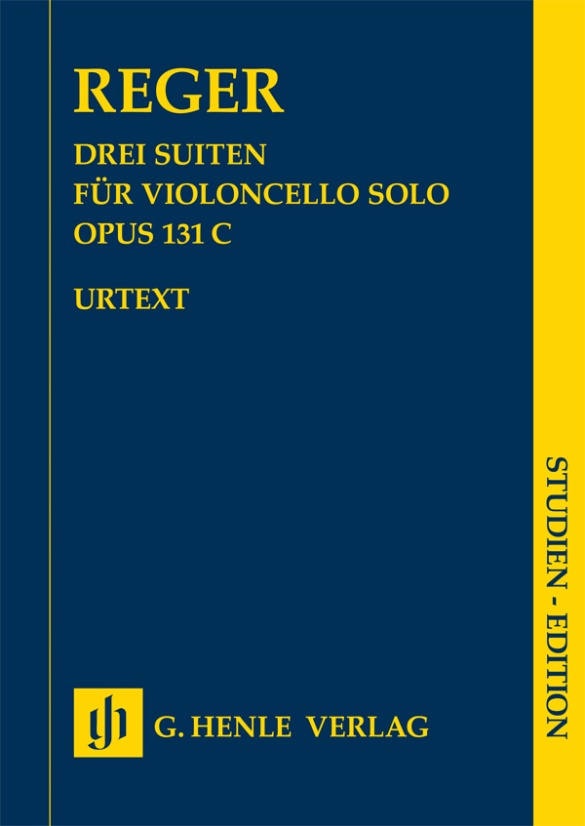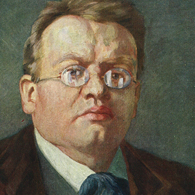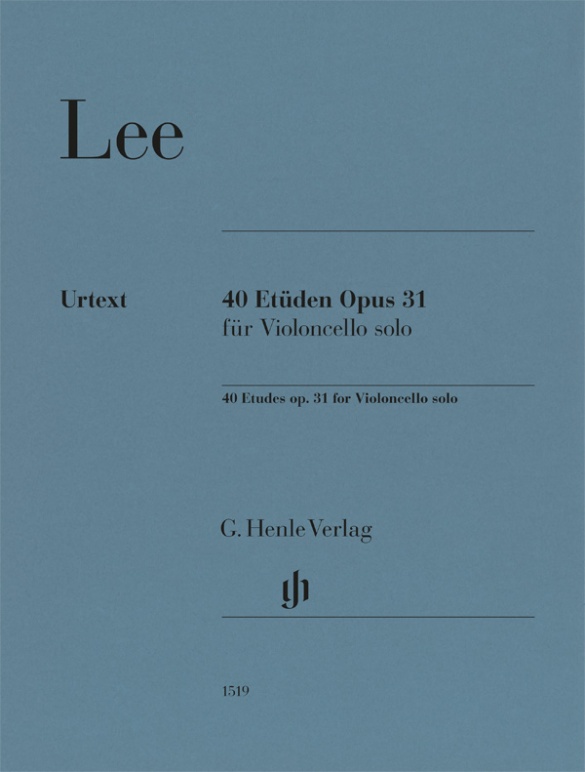

Max Reger
Three Suites op. 131c for Violoncello solo
Max Reger composed his Three Suites for Violoncello solo in 1914/15 for three important cellists and teachers of the time: Julius Klengel, Hugo Becker and Paul Grümmer.
Klengel was also friends with the composer. Reger humorously told him of his Opus 131c in summer 1915, calling them “strapping triplets”. He asked the cellist to “use these three things as often as possible in your lessons”, although they presuppose a great degree of skill on the students’ part. For all those who wish to conquer these works in theory, we are now also offering our Urtext edition of the Suites (HN 478) as a study score.
Content/Details
(Explanation)
About the Composer

Max Reger
Late-Romantic composer who combines a chromatic tonal language with Baroque and Classical forms, thus anticipating 1920s neoclassicism.
| 1873 | Born in Brand (Upper Palatinate) on March 19, the son of a teacher. First piano lessons from his mother. |
| 1888 | After a visit to Bayreuth (for Meistersinger and Parsifal), decides on a career in music. |
| 1890–93 | Studies with Hugo Riemann at the conservatory in Wiesbaden, composes chamber works. Thereafter he endeavors to publish his own works as a freelance composer, albeit with multiple failures. |
| 1898 | Return to his parents’ home in Weiden. Composition of organ works: choral fantasies, “Fantasy and Fugue on B-A-C-H,” Op. 46 (1900); Symphonic Fantasy and Fugue (“Inferno”), Op. 57. |
| 1901–07 | Living in Munich. |
| 1903 | Publication of his “On the Theory of Modulation,” causing Riemann to feel attacked because Reger espouses a different understanding of the role of chromatics. “Variations and Fugue on an Original Theme,” Op. 73. |
| 1904 | Breakthrough with his first performance for the Allgemeine Deutsche Musikverein (General German Music Association). First volume of his “Simple Songs” for voice and piano, Op. 76; String Quartet in D minor, Op. 74, one of the most significant works in that genre at the beginning of the century. |
| From 1905 | Instructor at Munich’s Academy of Music. “Sinfonietta” in A major, Op. 90. |
| 1907–11 | Music director and professor of composition at the University of Leipzig. Orchestral work “Variations and Fugue on a Theme by Hiller,” Op. 100. |
| 1909 | “The 100th Psalm,” Op. 106, his most popular choral work. |
| 1911–14 | Director of the royal court orchestra of Saxe-Meiningen. |
| 1912 | “Concerto in the Old Style,” Op. 123. Orchestral song “An die Hoffnung” (“To Hope”), Op. 124. |
| 1913 | “Four Tone Poems after A. Böcklin” for large orchestra, Op. 128; “A Ballet Suite,” Op. 130. |
| 1914 | “Variations and Fugue on a Theme by Mozart,” Op. 132 |
| 1915 | He resides in Jena. Late compositions. |
| 1916 | Death in Leipzig on May 11. |
About the Authors

Wolf-Dieter Seiffert (Editor)
Dr. Wolf-Dieter Seiffert, born in 1959 in Frankfurt/M., read musicology, modern German literature, and philosophy at the Ludwig-Maximilians-Universität in Munich. On a scholarship from the “Studienstiftung des Deutschen Volkes”, he did his doctorate in 1990 with a thesis on “Mozarts frühe Streichquartette” (Rudolf Bockholdt). That same year, Seiffert started work at G. Henle Publishers as an editor. Parallel to his work at the publisher, he completed a diploma in business studies at the St. Gallen University, KMU-HSG, financed by the Günter Henle Foundation. Seiffert was managing director of G. Henle Verlag from 2000 to 2023.
Seiffert has edited numerous Urtext editions for G. Henle Publishers, predominantly on Mozart’s works.
Product Safety Informations (GPSR)

G. Henle Verlag
Here you can find the information about the manufacturer of the product.G. Henle Verlag e.K.
Forstenrieder Allee 122
81476 München
Germany
info@henle.de
www.henle.com
L'edizione studio Henle beneficia di una puntuale introduzione critica di Susanne Shigihara ed è curata, con la consueta completezza, da Wolf-Dieter Seiffert.
Archi Magazine, 2015This handy A5 size Study Edition will be useful in the teaching studio.
Stringendo, 2014recommendations
autogenerated_cross_selling


